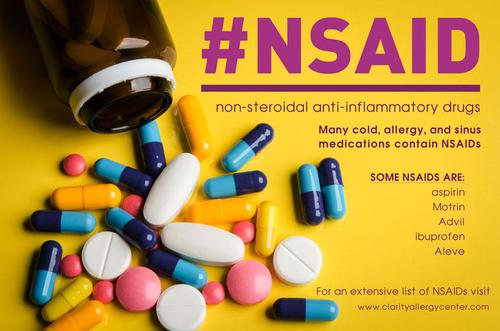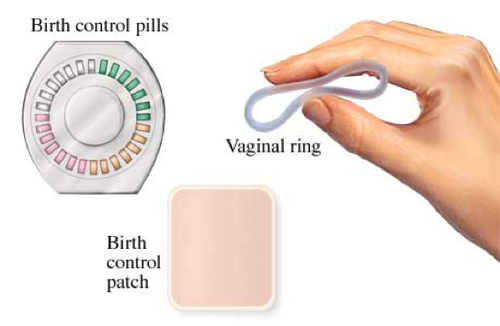Effects of Over-The-Counter Medications on Your Blood Pressure
Hypertension refers to high blood pressure which is typically blood pressure that goes up to 140/90 or more. The most severe cases of hypertension are the one that goes to 180/120, but it might take many of years for a hypertensive patient to reach the severe levels with symptoms. Over-the-counter (OTC) drugs refer to drugs that are bought without an official prescription from a physician to relieve joint pains such as headaches, stomach upset and conditions such as cold. There is a close relationship between over-the-counter medication and blood pressure where some of them raise blood pressure while others render prescribed medication ineffective. For instance, decongestants OTC drug are taken to relieve a congested nose, but they are known for increasing the risk of hypertension. Some of the other OTC drugs contain high levels of sodium which is known to raise blood pressure.

Medication Likely to Raise Your High Blood Pressure
The use of OTC medications without consulting your doctor is likely to boost the chances of increased high blood pressure. Doctors are highly concerned about the medicine you are taking whenever you have high blood pressure because some of them can raise your blood pressure levels. If you must use over the counter medicines, you should consult with your doctor first and make sure it will not affect your blood pressure. Explained below are some of the medications that are likely to worsen your high blood levels.
1. Non-Steroidal Anti-Inflammatory Drugs (NSAIDs)
NSAIDs are drugs that used in reducing pain, fever or lower body inflammation and include aspirin, ibuprofen, and naproxen. All the drugs have the capability of increasing the level of your blood pressure with their effects that vary from one patient to the other. NSAIDs are used in the treatment of conditions which include menstrual pain, rheumatoid arthritis, and osteoarthritis. The drugs lower the effect of other medications used in the treatment of high blood pressure. The impact on the blood pressure levels can be attributed to the fact that these drugs contain sodium which is not good for the body and an increased concentration in the retention of water in the body. The higher the level of fluid in the body increases the volume of blood which increases the workload of the heart in pumping the increased volume.

2. Antidepressants
Antidepressants are drugs that are used in the treatment of depression or prevention of its reoccurrence. This form of medication works by altering the response of the body towards chemicals produced by the brain, such as serotonin and dopamine. If you take antidepressants such as venlafaxine, fluoxetine, bupropion, tricyclic, phenelzine and monoamine oxidase inhibitors, it is vital to have your blood pressure checked from time to time. If the blood pressure is seen to have increased or have gone out of control, it would be necessary to ask the doctor about the ideal alternatives.
3. Decongestants
Commonly found in over-the-counter drugs meant to relieve common cold among other problems and they are known to trigger the constriction of blood vessels. Contraction of the vessels ultimately results in increased blood pressure.
4. Headache drugs
Some of the over-the-counter drugs meant to relieve your from headaches function through the tightening of the blood vessels in the head. The constriction of the blood vessels, however, affects other blood vessels in the body which have the effect of raising the blood pressure to dangerous levels.
Other Drugs Hypertensive People Should Avoid
High blood pressure is a common problem, but the good news is that the condition can be controlled by observing proper medication. Some of the best forms of treatment include changes in diet, exercises, and hypertension medications. During treatment, many factors can affect the result and over the counter medication is among them. Discussed below is a list of over the counter medication you ought to avoid if you don't want high blood pressure to reoccur.
- Stimulants
Stimulants are drugs that are used to make the central nervous system more active. Increased activity of the central nervous system may cause the heart to pump blood faster than it is supposed to raising the blood pressure.
- Weight loss drugs
If you are hypertensive and looking forward to losing weight, weight loss drugs should not be used. Most of the weight loss drugs contain substances such as caffeine known to raise the level of the pressure of the blood. Other weight loss methods such as body exercise, a healthy diet and visiting the gym should be considered instead of the weight loss drugs.
- Hormonal birth controls
Birth control medications contain estrogen and progesterone hormones which alter the levels of hormones in the body. The alterations to the hormones of the body are mainly meant to interrupt the reproductive activities crucial for pregnancy. The hormones contained in birth control pills are also among other hormonal birth control methods such as vaginal rings and patches which have the effect of narrowing the blood vessels. When the blood vessels are narrowed, it is likely that blood pressure is increased and the risk is higher if you are over 35 years or overweight. In actual sense, the birth control methods come with a warning that high blood pressure might be a possible side effect. Increased blood pressure doesn't affect all women who use hormonal birth controls, but it is recommended that you check your blood level regularly. If you are already suffering from hypertension, you should consider other birth control methods.

Summary
Hypertension is a significant problem that affects a countless number of people in today's world. It is important to take caution if you are hypertensive to ensure that the condition is under control. There are forms of treatment and medication that are known to make high blood pressure to skyrocket which is a health risk.
YOU MAY LIKE
-
Best Antidepressant for Weight Loss - Top Tips for You
-
Things to Have in Mind Before Stopping Statins
-
What Is the Best Diet to Follow When Having Antibiotics?
-
What to Do if You Overdose on Ibuprofen
-
Why Does Iron Turn Stool Black - Facts You Must Know
-
The Effects of Adderall to Your Body
-
Things About Primolut N You Must Know
-
Facts About Steroid Shots for Sinus You Must Know
-
Antibiotics! Some Harmful Aspects and Prevention Tips
-
Iron Deficiency? Take a Look at This!
